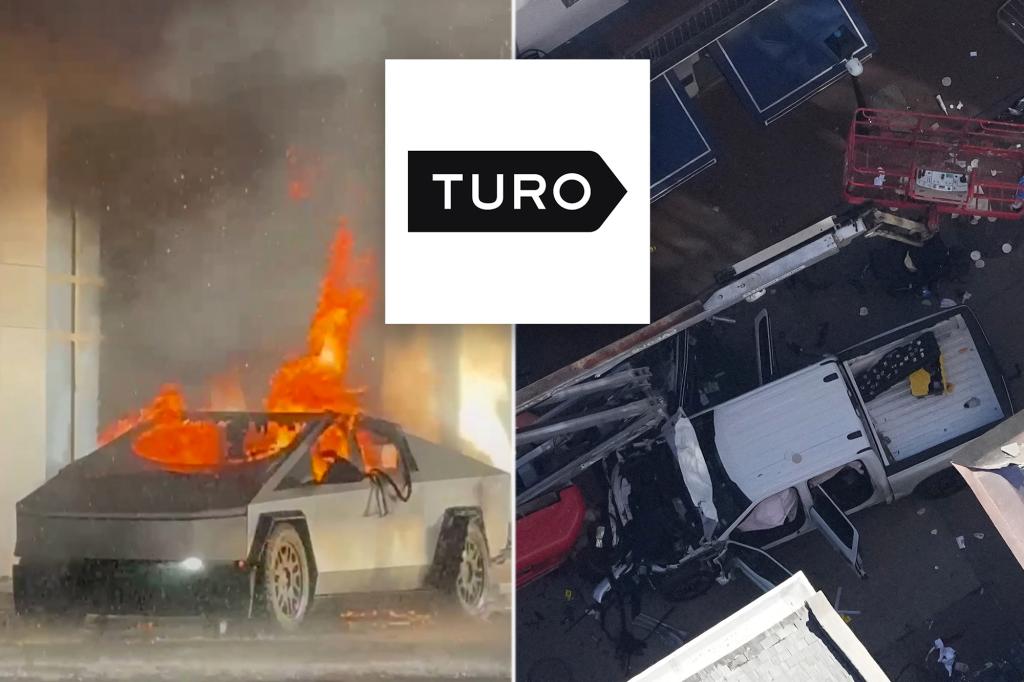The dawn of 2024 was marred by two devastating incidents: a deadly vehicular attack in New Orleans and a Cybertruck explosion in Las Vegas. While seemingly disparate events, both share a common thread – the peer-to-peer car sharing platform, Turo. This connection has raised concerns about the potential vulnerabilities of such services and the ease with which individuals, even those with malicious intent, can gain access to vehicles. Although investigators have not established a direct link between the two incidents, the fact that both vehicles were procured through Turo warrants a closer examination of the platform’s policies and security measures.
Turo operates on a model that allows individuals to rent out their personal vehicles to others, akin to an Airbnb for cars. Users browsing the platform can choose from a wide range of vehicles, from everyday sedans to luxury sports cars, depending on availability and location. The process is designed for convenience, with minimal requirements for renters. While a valid driver’s license and adherence to age restrictions are mandatory, personal insurance coverage is not a prerequisite. Turo itself provides insurance coverage for every trip, streamlining the rental process and potentially lowering the barrier to entry for those who might not otherwise qualify for traditional car rentals.
This simplified rental process, while appealing to many for its ease of use, also raises questions about the potential for misuse. The absence of a requirement for personal insurance and the reliance on Turo’s own coverage policy could attract individuals who might be deemed high-risk by traditional rental agencies. Moreover, the platform’s boast of “immediate approval in most cases” highlights the speed and efficiency of the process, a feature that, while convenient, might also bypass more rigorous vetting procedures employed by established car rental companies. This streamlined approach, designed for user-friendliness, could inadvertently create an avenue for individuals with malicious intentions to obtain vehicles for nefarious purposes.
The New Orleans attack, perpetrated by Shamsud-Din Jabbar, resulted in the tragic loss of 15 lives and left 30 others injured. Jabbar utilized a white Ford electric pickup truck, rented via Turo, to carry out the attack, driving through a crowd of New Year’s Eve revelers in the French Quarter. This incident underscores the potential for car sharing platforms to be exploited for acts of terror, raising serious concerns about public safety and the need for stricter security measures. The ease with which Jabbar obtained the vehicle via Turo highlights the potential vulnerabilities inherent in a system designed for ease of access and minimal bureaucratic hurdles.
Just hours later, in Las Vegas, a Tesla Cybertruck parked outside the Trump International Hotel exploded, claiming one life. This incident, also involving a vehicle rented through Turo, is currently under investigation as a possible act of terror. While no arrests have been made, the proximity of this incident to the New Orleans attack and the shared connection to Turo inevitably raises questions and warrants a thorough investigation into any possible links between the two events. The explosion of the Cybertruck further emphasizes the potential for vehicles obtained through car sharing platforms to be used in acts of violence, highlighting the need for enhanced security measures and more stringent vetting processes within the industry.
Turo, in response to these tragic events, has expressed its condolences and pledged cooperation with law enforcement in their investigations. The company maintains that neither renter involved in the attacks had a criminal background that would have flagged them as a security risk. This statement, while reassuring in that it suggests no prior criminal history was overlooked, also underscores the limitations of current screening processes in predicting future behavior and preventing individuals from exploiting the system. The incidents highlight a critical need for the industry to re-evaluate its security protocols and consider implementing more robust measures to prevent similar tragedies in the future. Balancing the convenience and accessibility that are central to the appeal of car sharing services with the imperative of public safety presents a significant challenge that requires careful consideration and proactive solutions.










